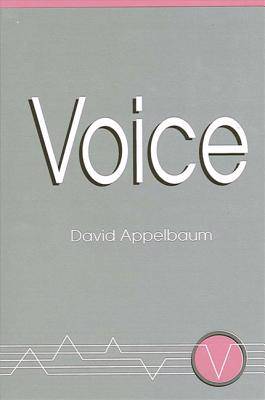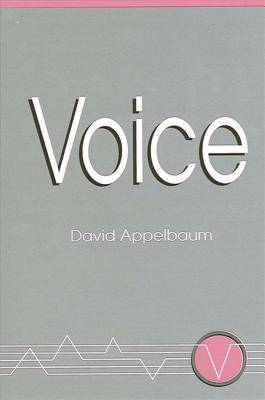
- Retrait gratuit dans votre magasin Club
- 7.000.000 titres dans notre catalogue
- Payer en toute sécurité
- Toujours un magasin près de chez vous
- Retrait gratuit dans votre magasin Club
- 7.000.000 titres dans notre catalogue
- Payer en toute sécurité
- Toujours un magasin près de chez vous
Description
Drawing on clues from Aristotle, Plato, Hobbes, Locke, Jacobson, Condillac, and Diderot, Appelbaum investigates the vocalized, acoustical aspect of audible expression. He analyzes the tendency to equate voice with speaking, and speaking with writing, the result being that vocalizing is equivalent to thinking aloud. Appelbaum affirms the body's role in vocalizing expression by proposing a new and radical interpretation of the truth of voice: that it is true if it provides a disclosure of our human contradictions. Sound, or the acoustical properties of a person's voice, is able to bring about the revolutionary new set of conditions which reveal the truth of one's condition. The author provides a unique account of the subjugation of voice by thought, indicating means for reversing the authority of the sound and for freeing up the voice. He concludes with the argument that poetic voice reconciles the search for semantic meaning with the raw, acoustical effect that the free voice causes.
Spécifications
Parties prenantes
- Auteur(s) :
- Editeur:
Contenu
- Nombre de pages :
- 155
- Langue:
- Anglais
Caractéristiques
- EAN:
- 9780791402870
- Date de parution :
- 05-07-90
- Format:
- Livre relié
- Format numérique:
- Genaaid
- Poids :
- 408 g







